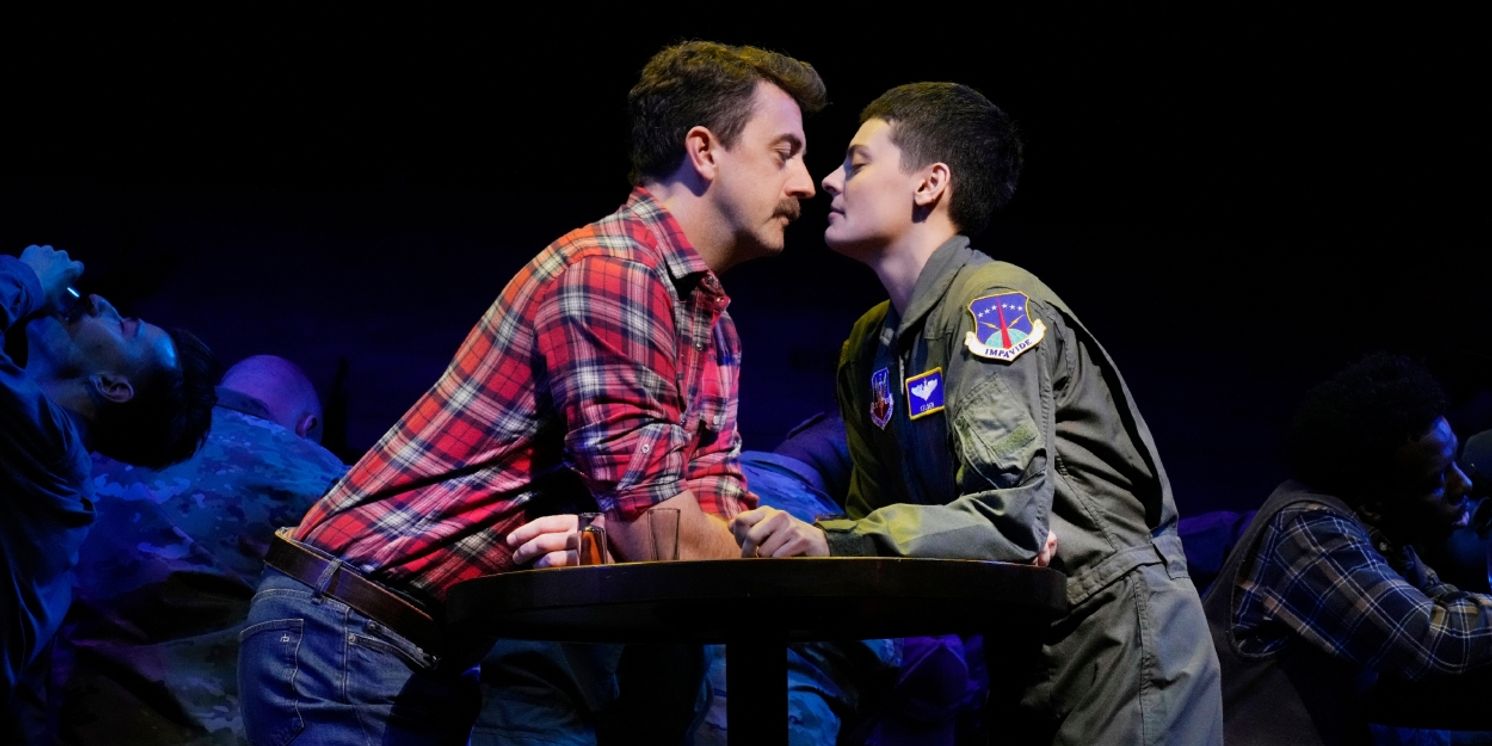Review: Girl Meets Drone in Tesori-Brant GROUNDED for Met Opening Night
Not Quite a Love Affair as Mezzo Emily D’Angelo Gives Powerful Performance in Mayer Production

A match made in heaven? Girl meets boy. Girl meets baby. Girl meets drone. Girl meets court-martial.
Once upon a time, playwright George Brant wrote a monodrama called “Grounded,” about the travails of a fighter pilot of F-16 fighter jets, who is grounded when she accidentally becomes pregnant after a one-night stand. After five years at home playing wife and mother, she is offered the chance to get back into action.
Well, maybe not exactly action and maybe not the job of her dreams, as Jess becomes part of the phenomenon of "remote warfare," paired with an expert game player to send drones off to fight in place of the real-life action she was once part of herself.
As Jess evolves as a character, the 75-minute “Grounded” also morphs from play to 2-1/2 hour opera, commissioned through the Met/Lincoln Center’s New Works program from Jeannine Tesori with Brand’s own take on the libretto, and from one-woman show to a full-blown cast. But the pilot, sung excitingly by mezzo Emily D’Angelo, is still the center of the piece, under director Michael Mayer.
Misgivings Jess had about the different part she was now playing—less active and more game-like--start to feel more comfortable and the new life, which allows her to go home from work to her husband and daughter, starts to be her “new normal.” Until it’s not.
We now meet “Also Jess,” as her personality starts to splinter, as she is torn between her dreams and reality. For those old enough to remember, it’s a bit of a modern take on “The Three Faces of Eve” (which was turned into an outstanding film with Joanne Woodward playing the title roles), though Jess tries to hide her problems in a way that Eve could not.
Mezzo D’Angelo excelled in bringing all the aspects of Jess to life and proved the faith that the Met has had in her development as an artist, since I first saw her at the National Auditions Concert in 2016.
Tenor Ben Bliss did some fine work as Jess’s husband Eric (I liked Tesori’s ballad for him as a young father), and soprano Ellie Dehn as Also Jess differentiated herself nicely from the original as the splintering personality became increasingly present (and Lucy LoBue charmed as daughter Sam).
Yet, I’m not sure this particular expansion from a one-acter play to a two-act opera was made in heaven. The rest of the built-out cast was fine—Tesori wrote some interesting music for the male chorus (under new director Tilman Michael)—but librettist Brant didn’t do enough to beef up all these extra characters. Bass-baritone Greer Grimsley, as Jess’s commander, seemed underused, in particular, as was baritone Kyle Miller, as Sensor, her Gameboy partner.
This was more apparent in Act II, which didn’t work as well as the opening segment of the piece. Lots of work had been done on the opera (as reported in the New York Times) since it opened last year at the Washington National Opera, but it could have used another stop on the way to New York to tighten the libretto and supply a few new ideas for the composer. I thought Jess’s downward path to court martial could have used more musical assistance for greater impact.
Sure, Tesori writes well. The score moves freely “among the realistic, psychic and technological,” says the program, with its echoes of Copeland and Sondheim among the more modern sounds. Nonetheless, some of it could have used a little more help from the librettist to direct what she has done, eg, what could have been better filled out musically. More time might have helped that along, though the Met Orchestra under Yannick Nezet-Seguin gave a compelling performance of the score.
Mayer and his stellar team successfully took a less-is-more attitude with the production, notably Mimi Lien’s set design and the co-projection designers, Jason H. Thompson and Kaitlyn Pietras, along with Kevin Adams’s lighting and Tom Broecker’s costumes. David Neumann was the choreographer.
The piece held together pretty well—when you think back at all the versions of operas by Verdi or Puccini went through over years and people are still trying to figure out what cuts should be used and which parts should be reinstated—and the opening night audience appeared to appreciate the effort.
It’s part of the challenge of bringing something new to the Met’s stage for opening night—and the excitement. It takes guts to attempt it. Bravo to the Met for trying.
Photo: Ben Bliss and Emily D’Angelo
Credit: Ken Howard/Met Opera
Reader Reviews

Videos

